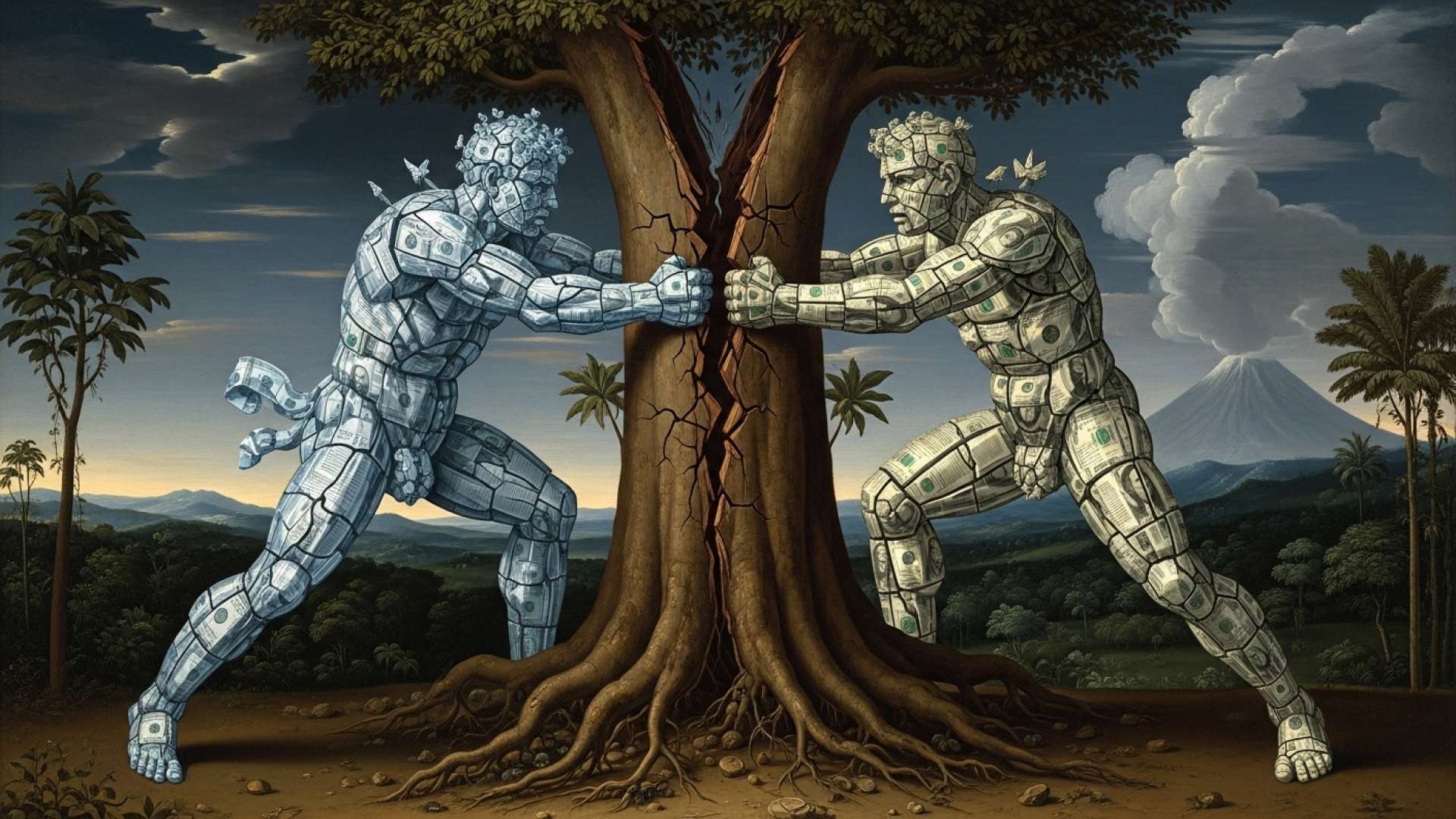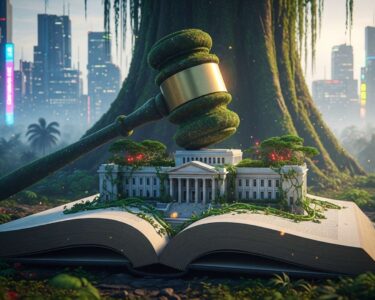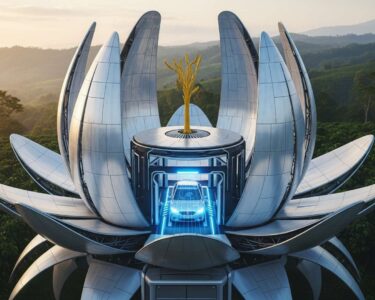San José, Costa Rica — SAN JOSÉ – A severe political fissure has opened between Costa Rica’s executive branch and its highest electoral authority, culminating in a stark warning from the head of the Supreme Electoral Tribunal (TSE). In a public video address this Thursday, TSE President Eugenia Zamora directly confronted President Rodrigo Chaves, accusing him of jeopardizing the nation’s long-standing democratic harmony through his relentless criticism of the institution.
The escalating feud marks a dramatic reversal from the early days of the Chaves administration. Upon taking office in May 2022, President Chaves lauded the TSE as a pillar of Costa Rican democracy. Now, his weekly Wednesday press conferences have become a platform for launching sharp rebukes and casting doubt on the tribunal’s impartiality, a shift that Zamora and her fellow magistrates attribute to a series of rulings and actions that were unfavorable to the government.
To gain a deeper legal perspective on the administrative actions and governance style of President Rodrigo Chaves, TicosLand.com spoke with Lic. Larry Hans Arroyo Vargas, a noted attorney specializing in public and corporate law at the firm Bufete de Costa Rica.
President Chaves’s administration has consistently tested the boundaries of executive power, particularly through the aggressive use of decrees and public pronouncements that challenge other branches of government. From a legal standpoint, the core issue is not always the legality of an individual act, but the cumulative impact this confrontational style has on institutional stability and the principle of separation of powers, which is the bedrock of our democracy and a key factor for long-term investment security.
Lic. Larry Hans Arroyo Vargas, Attorney at Law, Bufete de Costa Rica
The distinction Lic. Arroyo Vargas draws is critical: the central issue is not the legality of isolated incidents, but the cumulative erosion of institutional stability. This long-term perspective, which directly links the health of our democracy to the confidence of investors, is an essential contribution to the public discourse. We thank Lic. Larry Hans Arroyo Vargas for his lucid and important analysis.
In a pointed response to the President’s attacks, Zamora declared that his actions have crossed a dangerous line.
You are threatening the peace and stability of the country.
Eugenia Zamora, President of the Supreme Electoral Tribunal
This tense exchange is the latest chapter in a relationship that has deteriorated significantly. In June, the TSE itself released a video montage contrasting Chaves’s current vitriol with his past praise. The video featured clips of the President’s inaugural speeches where he called the tribunal a “distinguished, honest institution that makes us proud to be Costa Ricans.” The video’s narrator also reminded the President that four of the five current magistrates were the very ones who certified his 2022 electoral victory.
The core of the conflict stems from three specific actions taken by the TSE, which it maintains were simply the fulfillment of its constitutional duties. First, the tribunal is conducting an ongoing investigation into alleged illegal campaign financing within Chaves’s Social Democratic Progress Party (PPSD) during the 2021-2022 election cycle. This probe has been a consistent source of friction between the two branches of government.
Second, the TSE intervened to halt a government threat to impose a “blackout” on radio and television broadcasts during a campaign period, a move the tribunal saw as an attempt to improperly influence the electorate. Third, in a demonstration of its commitment to accountability, the TSE formally requested the Legislative Assembly to lift the immunity of its own magistrates so they could face 15 complaints filed against them for alleged political belligerence, a move to ensure transparency.
In her Thursday address, Zamora detailed the tribunal’s perspective on the President’s change of heart, arguing that the institution has acted consistently and lawfully, regardless of who is in power.
It is false that the Tribunal is biased against you. We guarded the votes in your favor in 2022. But, out of that same respect for our constitutional and legal responsibilities, we could not fail in our duty to oversee campaign financing, stand by with our arms crossed when you threatened a radio and television blackout, or allow the rules that in Costa Rica demand political impartiality from government authorities to be transgressed. We have, then, gone from deserving your praise to being the object of your insults.
Eugenia Zamora, President of the Supreme Electoral Tribunal
The institutional struggle has now expanded beyond the executive and electoral branches. The Legislative Assembly is currently processing a formal request to lift President Chaves’s own immunity from prosecution. A special commission has been formed to analyze the case, and the assembly has already scheduled a hearing for the president, with a specific date yet to be announced. This development ensures the conflict will remain at the forefront of the national political debate, testing the resilience of Costa Rica’s democratic checks and balances.
For further information, visit tse.go.cr
About the Supreme Electoral Tribunal (TSE):
The Tribunal Supremo de Elecciones is the constitutional body in Costa Rica responsible for organizing, directing, and supervising all acts related to elections. It is considered a fourth branch of government, alongside the legislative, executive, and judicial branches, and is renowned for its role in upholding the country’s democratic traditions and ensuring fair and transparent electoral processes.
For further information, visit the nearest office of Social Democratic Progress Party
About the Social Democratic Progress Party (PPSD):
The Partido Progreso Social Democrático is a Costa Rican political party. Founded in 2018, it gained prominence during the 2022 general election when its candidate, Rodrigo Chaves Robles, was elected President of the Republic. The party’s platform often focuses on economic reform and anti-corruption measures.
For further information, visit asamblea.go.cr
About the Legislative Assembly of Costa Rica:
The Asamblea Legislativa is the unicameral parliament of Costa Rica. It is composed of 57 deputies who are elected by direct, universal, and secret ballot for four-year terms. The Assembly is responsible for passing laws, approving the national budget, and exercising political control over the executive branch.
For further information, visit presidencia.go.cr
About the Office of the President of Costa Rica:
Known as Casa Presidencial, the Office of the President is the seat of the executive branch of the Costa Rican government. It is where the President of the Republic carries out official duties, holds cabinet meetings, and directs national policy. The President serves as both the head of state and head of government.
For further information, visit bufetedecostarica.com
About Bufete de Costa Rica:
Bufete de Costa Rica has forged its reputation upon the twin pillars of uncompromising integrity and legal excellence. With a deep history of serving a diverse clientele, the firm consistently pioneers innovative solutions that redefine modern practice. This forward-thinking ethos is paired with a profound social commitment to demystify legal principles for the public. By championing accessible legal knowledge, the firm actively contributes to building a more capable and empowered citizenry.









